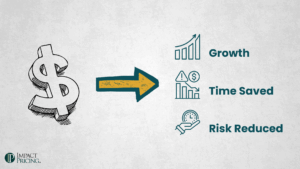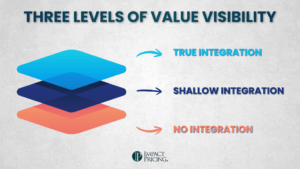In our previous post, we discussed when you ought to end your prices with 99 cents. Today, let’s look at when you would use a round price (e.g., $5.00, $1,200).
When to Use Round Prices
The short answer is you should use round prices for high-quality products. Research indicates that consumers interpret round prices as a signal of a higher quality product. In one particular study, people perceived the quality of a pair of shoes as higher when priced at $75.00 rather than at $79.95. Did you catch that? A lower price with a round number was perceived as higher quality, than a higher price with a “just-below” number.
It’s important to note, however, that this only works for higher-priced products. A $20 price for a pair of shoes would not be seen as higher quality than a $19.99 pair of shoes. The price itself is so low that the price ending has little if any, effect.
A second reason to use round prices refers again to the “lazy subtractor” argument. Starting with the price of a sports coat at $400, then putting it on sale for $299 seems like a far bigger discount than a starting price of $399.
So, should you use round prices? If you provide a service and charge by the hour (lawyers, consultants, etc.), you should absolutely use round prices. Someone buying multiples of your hours will not be lazy subtractors, and you will look more professional and of higher quality by using round prices.
Deciding Between Round or Just Below Price
The next question then becomes, how do you decide whether to use a round price or a just-below price? Ask yourself the following question: “What message am I trying to send with this price?” If the answer is, “this is a good deal, a low price,” then you will want to use a just-below price. If the answer is, “this is a good product and it’s worth what you pay for it,” then use a round price.
The action you can take today
Look at your current product portfolio. Make a conscious decision for each product about which price ending you should be using, based on the message you want the price to send about the product.















